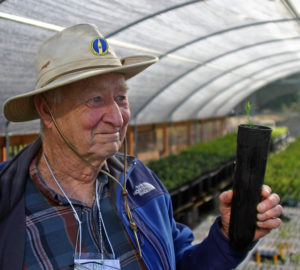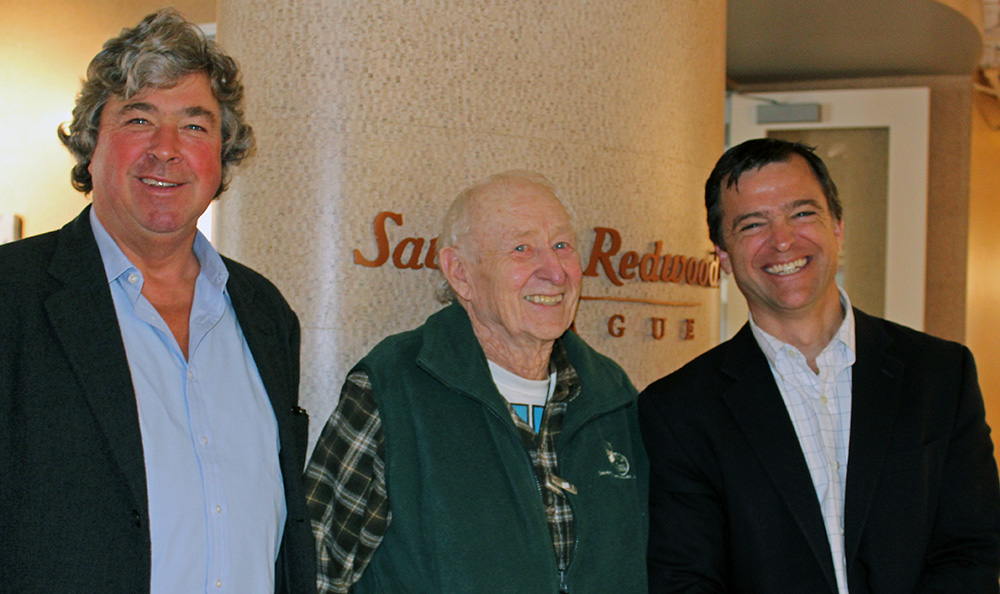
“My ranger asked me what I was planning to do with my life. I was enrolled in a forestry school and was having trouble deciding whether to go into genetics or continue in forestry. With one sentence, he focused my life; he said, ‘Well, trees have genes, don’t they?’”
Now living in Orinda, California, Professor Libby and his students went on to conduct pioneering research on the genetic architectures of the giant sequoia and coast redwood, which got him an invitation to join the Save the Redwoods League’s Board of Councilors in 1990. After 26 years of service, including nine years on the Board of Directors, he transitioned to the role of Honorary Councilor on March 23, 2017.
His League achievements include leading the committee that awards grants for scientific research, and serving as an advisor for the League’s Redwoods and Climate Change Initiative. While adding to general knowledge of coast redwood and sequoia, the RCCI studies the impacts of climate change on redwood and sequoia growth, on their carbon storage and the several different ecosystems dominated by these two keystone species.
A cherished memory of his League tenure, among many, is traveling to a remote part of China in 1999 to retrace the 1948 footsteps of Ralph Chaney, a former League president and the first Westerner to see a live dawn redwood. “For Professor Chaney to be the first Western scientist to visit and observe a living population of the third redwood species with its associated ‘fossil ecosystem,’ which had been known only by its fossils and which we thought had been extinct for over a million years — that caused quite a stir,” he said.
As for the future of redwood forests, Libby hopes to explore ways to establish genetically diverse groves of these three redwood species in other parts of the world so that people can there experience the feelings of awe, peace and well-being that the current ancient native groves inspire.
League President Sam Hodder said Libby has served the League with distinction. “We’re so grateful for Bill’s exemplary service,” Hodder said. “His influence will shape our efforts for years to come.”


2 Responses to “Bill Libby: League Honors a Scientist and Leader”
Barbara
Dr. Libby is one of the most authentic, generous people I have had the privilege of spending time with while I was a student at UC Berkeley.
How wonderful to see his smile and that twinkle in his eye again in his SAF video interview.
Thank you for the good you continue to do in the world, Dr. Libby, through your love and caring for people as well as the trees.
P King
It is a weathered day and the footsteps seam stray,
focal brooding cannot track where they should lay.
Steer eyes (try, yet) cast the trees too high to release (a presage).
So a stance in one spot circles back in the very place it sow began.
Surveying
on these unmoored trails have tired a sole, and spooked
the hearth into believing ones loss…
This still, in the rough, ushers to a knee.
So a slant in the foot-
holds an awakening for the light,
to break an arise
…once again.